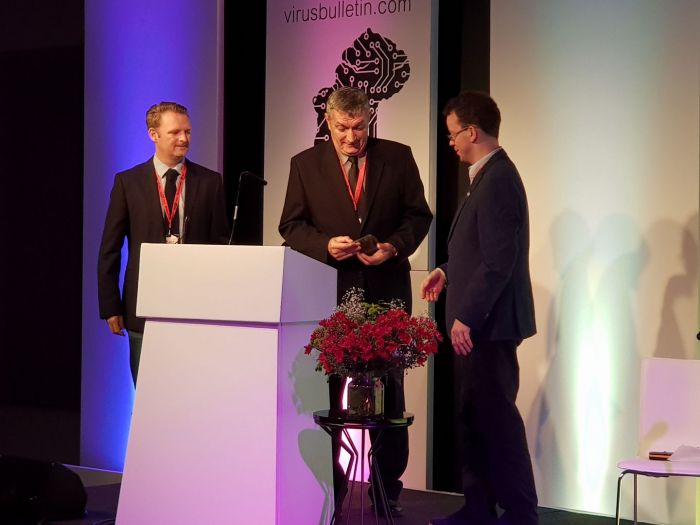Posted by Martijn Grooten on Oct 23, 2017
Every year, during the Virus Bulletin Conference gala dinner, we celebrate the life and works of Péter Szőr, the brilliant security researcher who passed away so sadly in 2013. We do so by recognizing a great piece of technical security research with the Péter Szőr Award.

This year, we received many nominations, which we narrowed down to a shortlist of three:
The award was presented during the VB2017 gala dinner by Symantec researcher Liam O'Murchu, who both knew Péter Szőr personally and worked closely with him. After a short speech in which Liam shared some personal anecdotes about Péter, he announced the winner of the fourth award: Gábor Szappanos for his AKBuilder research paper.

Sophos researcher Gábor Szappanos receives the fourth Péter Szőr Award.
Given the quality of the AKBuilder paper, and of Gábor's work over the years, the winner was a popular choice. It means that after Canada, The United States and The Netherlands, the Péter Szőr Award now finds its way to Hungary – the country in which Péter himself grew up.